
SimCity, also known as Micropolis or SimCity Classic, is a city-building simulation video game developed by Will Wright, and released for several platforms from 1989 to 1991. SimCity features two-dimensional graphics and an overhead perspective. The game's objective is to create a city, develop residential and industrial areas, build infrastructure, and collect taxes for further city development. Importance is placed on increasing the population's standard of living, maintaining a balance between the different sectors, and monitoring the region's environmental situations to prevent the settlement from declining and going bankrupt.

The Sims is a social simulation video game developed by Maxis and published by Electronic Arts in 2000. The game allows players to create and control virtual people, called "Sims", and manage their daily lives in a suburban setting. The game features an open-ended gameplay, where players can choose their own goals and objectives, and customize their Sims' appearance, personality, skills, relationships, and environment. A series of expansion packs were also released that add new content and features to the game, such as new careers, items, locations, and scenarios.
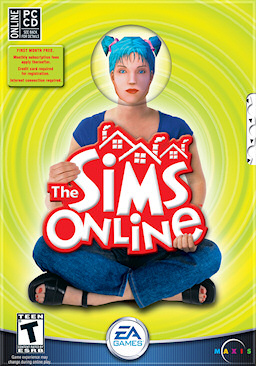
The Sims Online was a 2002 massively multiplayer online game (MMO) developed by Maxis and published by Electronic Arts (EA) for Microsoft Windows. The game was a subscription-based online multiplayer version of the 2000 Maxis game The Sims, in which players could interact with others on virtual user-made lots, buy and customise properties, and make in-game money by taking on jobs. The Sims Online was the project of Maxis founder and Sims creator Will Wright, who sought to create an open-ended online game based on social interaction, with ambitions for the game to be a platform for emergent gameplay and the creation of virtual societies and politics. In line with these ambitions and the prior commercial success of The Sims, The Sims Online received considerable pre-release coverage, with expectations that it would be successful and break new ground for online multiplayer games.

Mario Kart: Double Dash is a 2003 kart racing video game developed and published by Nintendo for the GameCube. It is the fourth main entry in the Mario Kart series. Similar to previous titles, Double Dash challenges Mario series player characters to race against each other on Mario-themed tracks. The game introduced a number of gameplay features, such as having two riders per kart.
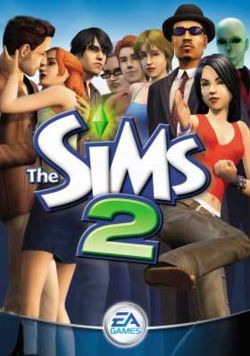
The Sims 2 is a 2004 social simulation video game developed by Maxis and published by Electronic Arts. It is the second major title in The Sims series, and is the sequel to The Sims. The game was released for Microsoft Windows on September 14, 2004, and a port for MacOS by Aspyr was released on June 17, 2005. Eight expansion packs and nine "stuff packs" were subsequently released between 2005 and 2008. In addition, versions of The Sims 2 were released on various video game consoles, including the PlayStation 2, Xbox, Nintendo DS, and GameCube, and mobile platforms, including the Nokia Ovi Store. The three handheld versions of the game are completely different among themselves, unlike the home console versions of the game, which are virtually identical to each other. All three handheld versions take on more of a linear storyline. A sequel, The Sims 3, was released in June 2009.

Half-Life 2 is a 2004 first-person shooter (FPS) game developed and published by Valve Corporation. It was published for Windows on Valve's digital distribution service, Steam. Like the original Half-Life (1998), Half-Life 2 combines shooting, puzzles, and storytelling, and adds new features such as vehicles and physics-based gameplay. The player controls Gordon Freeman, who joins a resistance to liberate Earth from the Combine, an interplanetary alien empire.

Paper Mario: The Thousand-Year Door is a 2004 role-playing game developed by Intelligent Systems and published by Nintendo for the GameCube. The Thousand-Year Door is the second game in the Paper Mario series following Paper Mario, and is part of the larger Mario franchise. In the game, when Mario and Princess Peach get involved in the search for a mystic treasure that holds great fortune, Peach is kidnapped by an alien group called the X-Nauts; Mario sets out to find the treasure and save the princess.
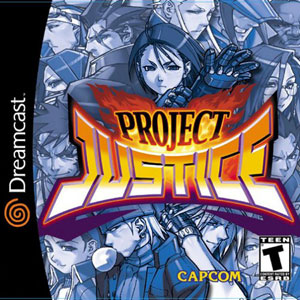
Project Justice, also known as Project Justice: Rival Schools 2 in Europe, Australia, and Latin America, and known in Japan as Moero! Justice Gakuen is a 3D fighting video game produced by Capcom. It is the sequel to Rival Schools: United By Fate and was released as an arcade game in 2000 and ported to the Dreamcast in 2001. The U.S. version was originally slated for a February 2001 release, before it was further delayed to 16 May.

The Sims 3 is a 2009 life simulation video game developed by the Redwood Shores studio of Maxis, and published by Electronic Arts. Part of The Sims series, it is the sequel to The Sims 2. It was released on June 2, 2009, for Mac OS X, Microsoft Windows, and smartphone versions. Console versions were released for PlayStation 3, Xbox 360, and Nintendo DS in October 2010 and a month later for Wii. The Windows Phone version was released on October 15, 2010. A Nintendo 3DS version, released on March 27, 2011, was one of the platform's launch titles.
Construction and management simulation (CMS), sometimes also called management sim or building sim, is a subgenre of simulation game in which players build, expand or manage fictional communities or projects with limited resources. Strategy video games sometimes incorporate CMS aspects into their game economy, as players must manage resources while expanding their project. Pure CMS games differ from strategy games, however, in that "the player's goal is not to defeat an enemy, but to build something within the context of an ongoing process." Games in this category are sometimes also called "management games".

The Sims is a series of life simulation video games developed by Maxis and published by Electronic Arts. The franchise has sold nearly 200 million copies worldwide, and is one of the best-selling video game series of all time. It is also part of the larger Sim series, started by SimCity in 1989.
Social simulation games are a subgenre of life simulation game that explore social interactions between multiple artificial lives. Some examples include The Sims and Animal Crossing series.
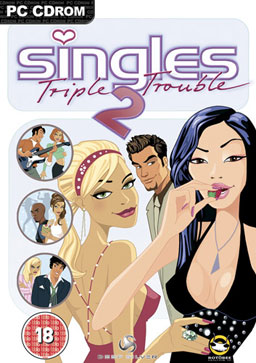
Singles 2: Triple Trouble is a social simulation video game developed by German studio Rotobee and published by Deep Silver in 2005. It is the sequel to the 2004 game Singles: Flirt Up Your Life. The player is responsible for taking care of the characters daily needs such as eating, sleeping, and going to work. The player is also responsible for developing the characters romantic relationships and can progress from being casual acquaintances to having a sexual relationship. There are several characters of either sex with the possibility for a gay/lesbian relationship as well.

MissingNo. is a glitch and an unofficial Pokémon species found in the video games Pokémon Red and Blue. Due to the programming of certain in-game events, players can encounter MissingNo. via a glitch. It is one of the most famous video game glitches of all time. Encountering MissingNo. causes graphical anomalies and changes gameplay by increasing the number of items in the sixth entry of the player's inventory by 128.

The Sims Medieval is a life simulation game that was released in March 2011 by Electronic Arts for Microsoft Windows and Mac OS X, and on September 22, 2011 for iOS, as part of The Sims series. It was also made available for Windows Phone on March 26, 2013. Set in medieval times, it allows the player to build a kingdom through quest-driven gameplay. During presentation at E3 2010, a pre-order exclusive Limited Edition was also available.

The Sims 4 is a free-to-play social simulation game developed by Maxis and published by Electronic Arts. It is the fourth major title in The Sims series, following The Sims 3 (2009). The game was released in North America on September 2, 2014, for Windows, an OS X version was released in February 2015, and PlayStation 4 and Xbox One versions were released in November 2017. The game was moved to a free-to-play model on October 18, 2022, monetized by the purchase of various paid downloadable content packs that have been developed since its release.

Crossy Road is an arcade video game released on 20 November 2014. It was developed and published by Australian video game developer Hipster Whale and originally in colaboration with yodo1, with the name and concept of the game playing on the age-old joke/anti-joke "Why did the chicken cross the road?" The game has also been described as endless runner version of Frogger. It is also worth noting that after June 2017, the publisher for Crossy Road was changed from yodo1 to Hipster Whale.

Stardew Valley is a 2016 farm life sim video game developed by Eric "ConcernedApe" Barone. Players take the role of a character who inherits their deceased grandfather's dilapidated farm in a place known as Stardew Valley. The game was released for Windows in February 2016, before being ported to other platforms. Stardew Valley is open-ended, allowing players to grow crops, raise livestock, fish, cook, mine, forage, and socialize with the townspeople, including the ability to marry and have children. It allows up to eight players to play online together.
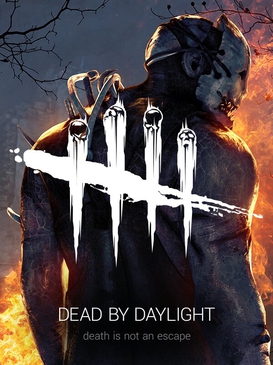
Dead by Daylight is an online asymmetric multiplayer survival horror video game developed and published by Canadian studio Behaviour Interactive. It is a one-versus-four game in which one player takes on the role of a Killer and the other four play as Survivors; the Killer must hunt and impale each Survivor on sacrificial hooks to appease a malevolent force known as the Entity, while the Survivors have to avoid being caught and power up the exit gates by working together to fix five generators.

The Sims Mobile is a life simulation game based on The Sims 4 for Android and iOS, published by Electronic Arts and initially developed by Maxis. It was announced on May 9, 2017, and was released on March 6, 2018. It features a multiplayer component and includes story elements.

















